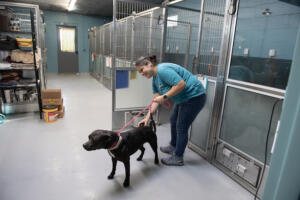A Washougal High School sophomore has filed a tort claim against the school district, seeking $50,000 in damages, for allegedly failing to protect her and other students from inappropriate touching by math teacher Jay Jenkins.
“This student is now in counseling and her ability to trust has been disrupted,” said the student’s Vancouver attorney, Josephine Townsend.
The April 18 claim states that Jenkins created a hostile educational atmosphere by touching female students inappropriately.
“He inappropriately touched at least three students while teaching their classes at the high school. The investigation by the school verified that the touching occurred and that Mr. Jenkins had at least one documented prior event of inappropriate touching. The school failed to properly supervise Mr. Jenkins…and allowed the behavior to repeat itself with new victims.”
Townsend forwarded records of the school district’s investigation into Jenkins’ conduct to the Post-Record and the Washougal Police Department. Those documents were obtained through a public records request.




